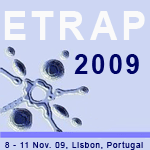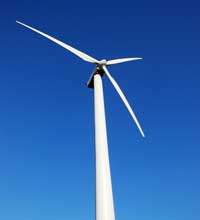
Kant and the Nimby Syndrome

by Andrew Teller
On 19 August 2009, the Scottish edition of the Times featured an article whose title caught my attention. It read “Danish wind farm group blames island Nimbys for profit falls”. It reported that a large manufacturer of wind turbines was blaming “Not in my backyard” (nimby) reactions for falling sales in the United Kingdom. This was but one example of numerous wind mill rejections. So I thought, there is nothing personal against nuclear energy. Even the more popular energy sources can elicit the same rejection reaction as the more controversial ones. That was the good news. The bad news is that such behaviour is not sustainable. One cannot at the same time expect energy to be available at will and refuse to do what is needed to produce and transport it. Actually, one could argue that the said behaviour is not moral. The German philosopher Immanuel Kant (1724 – 1804) had an interesting way of telling whether an action was moral or not. His idea hinges on the concept of moral imperative, a formulation of which can be given as follows1:

Let us first call “maxim” an action paired with its motivation. To say the same thing slightly differently, an agent's maxim, according to Kant, is his "subjective principle of human actions", that is, what the agent believes is his reason to act. Kant’s moral imperative then requires that the maxims be chosen as though they should hold as universal laws of nature. This formulation in principle has as its supreme law the creed "Always act according to that maxim whose universality as a law you can at the same time will" and is the "only condition under which a will can never come into conflict with itself"
It is possible to devise a test to decide if a maxim can have universal value. This test consists of five steps:
-
Find the agent's maxim (as defined above). Take for example the declaration "I will lie for personal benefit." Lying is the action; the motivation is to fulfil some sort of desire. Paired together, they form the maxim.
-
Imagine a possible world in which everyone in a similar position to the real-world agent followed that maxim.
-
Decide whether any contradictions or irrationalities arise in the possible world as a result of following the maxim.
-
If a contradiction or irrationality arises, acting on that maxim is not allowed in the real world.
-
If there is no contradiction, then acting on that maxim is permissible, and in some instances required.
In this context, the nimby reaction appears immoral indeed: it obviously cannot be willed as a universal law since it would imply the impossibility of building power plants or, for that matter, any industrial facility2.
It is difficult to understand why people can get so reluctant to sacrifice a small, nonessential part of their comfort to ensure essential needs such as energy. Surely several factors come into play, one of them being the fear of innovation. On that score, I remember having read about country people in Japan rioting against the erection of a lightning rod; the interesting thing is that this happened in… the seventeenth century! What is now taken for granted by everybody was then seen as a threatening device capable of entailing all sorts of evil consequences. Another reason resides probably in the decreasing utility of additional quantities of any good. Clearly people were less choosy at the beginning of the last century. The prospect of enjoying the convenience of electric lighting and other appliances was more than enough to compensate the small inconvenience of seeing a few electric poles through the window. If this interpretation is true, then it would follow that actual electricity shortages will be needed before people start reconsidering their opposition to power plants and high voltage lines. Yet another reason could be the unflinching support given by anti-nuclear activists to nimby reactions in areas mooted for hosting nuclear facilities. Such initiatives might have been instrumental in creating a nimby mentality that has survived its initial purpose. Should this assumption be grounded, it would provide further confirmation of two important principles. First, one should never use foul means to further one’s objectives, however commendable the latter might be (or appear to be). Second, beware of the unintended consequences of your decisions.
1 The explanation borrows heavily from Wikipedia’s article on Kant.
2 This is why “nimby” gets eventually further perverted into “banana” (build absolutely nothing anywhere near anybody).
|










